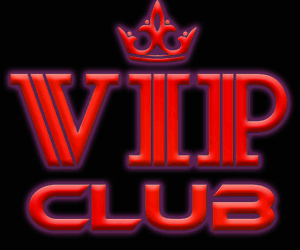I never used rice cereal its basically like handing a baby a bowl of sugar.
There's no amount given because: a) in many countries its illegal to market foods to babies under 6 months of age b) its not required c) there are no food guide amounts for babies under 2 because their needs are too different
http://www.msnbc.msn.com/id/9646449/
Take rice cereal, for example. Under conventional American wisdom, it's the best first food. But Butte says iron-rich meat  often one of the last foods American parents introduce  would be a better choice.
Dr. David Ludwig of Children's Hospital Boston, a specialist in pediatric nutrition, says some studies suggest rice and other highly processed grain cereals actually could be among the worst foods for infants.
"These foods are in a certain sense no different from adding sugar to formula. They digest very rapidly in the body into sugar, raising blood sugar and insulin levels" and could contribute to later health problems, including obesity, he says.
The lack of variety in the American approach also could be a problem. Exposing infants to more foods may help them adapt to different foods later, which Ludwig says may be key to getting older children to eat healthier.
http://www.askdrsears.com/html/3/T032000.asp
HOW WILL I KNOW WHEN MY BABY IS READY FOR SOLIDS?
As with all aspects of parenting, watch your child and not the calendar. Besides the developmental milestones above, watch for these ready-to-eat cues in your baby:
Able to sit with support, reaches and grabs, and mouths hands and toys
Watches you eat, following your fork as it moves from plate to mouth
"Mooches," reaching for food on your plate
Mimicks your eating behaviors, such as opening her mouth wide when you open your mouth to eat. Grabbing your spoon is not a reliable sign of feeding readiness, since baby may be more interested in the noise, shape, and feel of your utensils rather than the food stuff on them.
Baby can show and tell. Around six months of age babies have the ability to say "yes" to wanting food by reaching or leaning toward the food and "no" by pushing or turning away. Expect mixed messages as your baby learns to communicate. When in doubt, offer, but don't force.
Does baby seem hungry for additional food? If your baby is content with breastmilk or formula, no need to complicate his life with solids. If, on the other hand, your baby seems unsatisfied after a feeding, is shortening the intervals between feedings, and several days of more frequent feedings don't change this, it may be time to begin.
[...]
HOW DO I START?
Use your finger as baby's first "spoon." It's soft, at the right temperature, and baby is familiar with it. Encourage baby to open her mouth wide. Place a fingertipful of this glorious glob on baby's lips while letting her suck on the tip of your finger. Next, advance the fingertipful of food to the tip of your baby's tongue (where there are tastebuds receptive to sweetness). If this gets swallowed, or at least is not spit back at you, try placing the next glob toward the middle of baby's tongue.
Watch baby's reaction to this new experience. If the food goes in with an approving smile, baby is ready and willing. If the food comes back at you, accompanied by a disapproving grimace, baby may not be ready. Some babies make funny faces just because this is all so new to them. What happens in the mouth may be a more accurate indicator of whether a baby is ready to eat solids. If the mouth opens for a second helping, give it another try – you may have a winner. Even if the food comes back out, the baby may just need to learn to seal his mouth shut when he moves the food from the front to the back. Rejection of the food could also indicate that the tongue-thrust reflex is not yet gone, and baby can't move the food to the back of his mouth and swallow it. If your baby just sits there, with an open mouth, confused by the glob of food perched on her tongue, she's probably having difficulty with the tongue-thrust reflex. Let her practice a while. If she still doesn't seem to know what to do, wait a week or two before you try again.
http://www.askdrsears.com/faq/ci2.asp
Many babies become constipated when foods are first added to their diet. The main reason for this is that the standard recommended starting foods are all constipating - rice cereal, bananas, squash, and applesauce. Why do health care professionals choose these starting foods when they know they will make most babies constipated? Good question. Even my own Baby Book lists these as starting foods.
The truth is, there is nothing special about these foods that makes them better to start out with. Babies don't actually even need rice cereal.

























































































